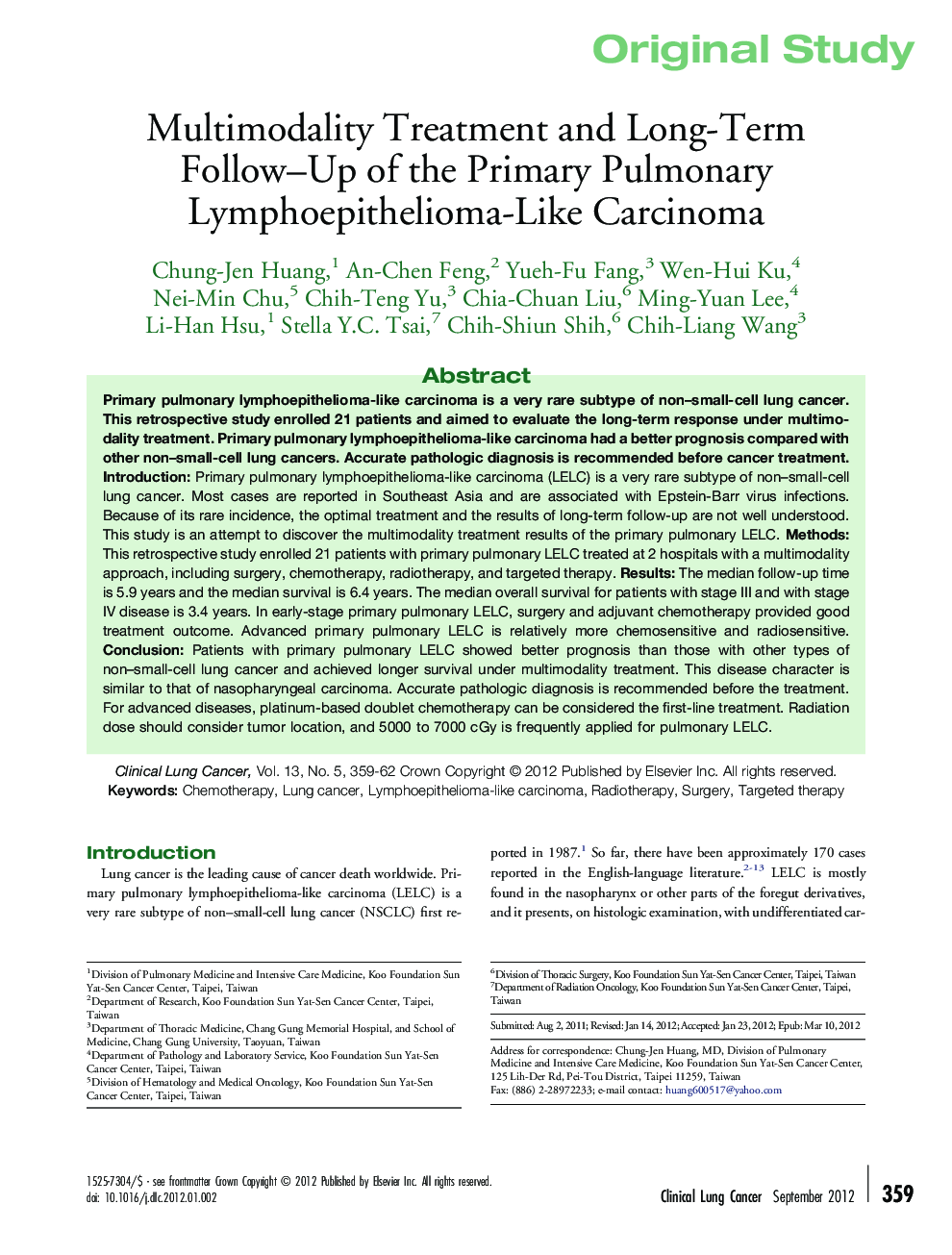| کد مقاله | کد نشریه | سال انتشار | مقاله انگلیسی | نسخه تمام متن |
|---|---|---|---|---|
| 2752894 | 1149598 | 2012 | 4 صفحه PDF | دانلود رایگان |

IntroductionPrimary pulmonary lymphoepithelioma-like carcinoma (LELC) is a very rare subtype of non–small-cell lung cancer. Most cases are reported in Southeast Asia and are associated with Epstein-Barr virus infections. Because of its rare incidence, the optimal treatment and the results of long-term follow-up are not well understood. This study is an attempt to discover the multimodality treatment results of the primary pulmonary LELC.MethodsThis retrospective study enrolled 21 patients with primary pulmonary LELC treated at 2 hospitals with a multimodality approach, including surgery, chemotherapy, radiotherapy, and targeted therapy.ResultsThe median follow-up time is 5.9 years and the median survival is 6.4 years. The median overall survival for patients with stage III and with stage IV disease is 3.4 years. In early-stage primary pulmonary LELC, surgery and adjuvant chemotherapy provided good treatment outcome. Advanced primary pulmonary LELC is relatively more chemosensitive and radiosensitive.ConclusionPatients with primary pulmonary LELC showed better prognosis than those with other types of non–small-cell lung cancer and achieved longer survival under multimodality treatment. This disease character is similar to that of nasopharyngeal carcinoma. Accurate pathologic diagnosis is recommended before the treatment. For advanced diseases, platinum-based doublet chemotherapy can be considered the first-line treatment. Radiation dose should consider tumor location, and 5000 to 7000 cGy is frequently applied for pulmonary LELC.
Journal: Clinical Lung Cancer - Volume 13, Issue 5, September 2012, Pages 359–362